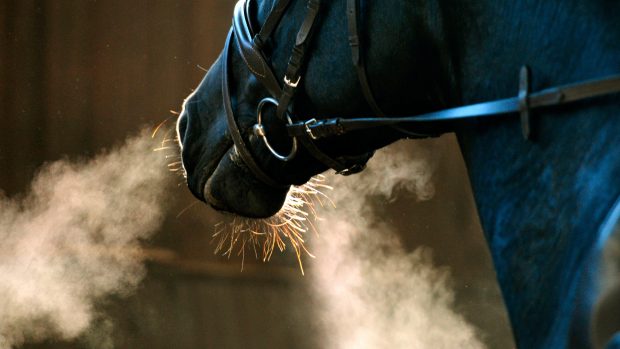Recent research on young racehorses by the Animal Health Trust (AHT) in Newmarket, supported by the Levy Board, has shown that nearly 80% of animals suffer from inflammatory airway disease in their first year of training.
Inflammatory airway disease can have serious repercussions on performance, and may also be associated with poor performance in National Hunt horses, which is currently credited to “a virus”.
While the incidence of IAD in hurdlers and steeplechasers is currently unknown, the AHT and the Levy Board intend to remedy this through a three-year study, which began recently.
Signs of respiratory disease vary considerably but may include:
- Low exercise tolerance
- Coughing
- Difficulty in breathing
- Excess mucus production
Good stable management is essential to reduce the risk of respiratory disorders, while recent research has indicated that dietary antioxidants may help reduce the incidences and severity of inflammatory airway disease.
Factors that may exacerbate respiratory disorders include exercise, pollution, dust and pollen. These result in reactive oxygen species (free radicals) damage to the lungs. Recent research has indicated that feeding a combination of antioxidants can significantly reduce this damage.
Free radicals are produced as a result of the body’s normal processes and environmental conditions. Normally the body uses antioxidants to prevent free radicals from damaging the body’s cells, however, in times of stress, such as when in training or racing regularly, excessive levels of free radicals may be produced. This will increase a horse’s risk of illness, including respiratory disease.
Antioxidants include vitamins, such as vitamin E and C, and minerals, such as selenium. In order for antioxidants to work effectively, a mixture of nutrients are required, which will help to reduce the risk of respiratory disease and airway inflammation caused by free radical damage.
In their natural environment horses would receive adequate levels of antioxidants from fresh grass. However, the current way in which most horses are managed reduces the levels of antioxidants available to them, while training methods increase the need for these vital nutrients.
Recent research published in the equine scientific press has shown that the levels of the important antioxidant, vitamin C, are significantly reduced in the lungs of horses suffering from airway disease. Most horses take several months to recover while some animals may never recover without dietary supplementation.
Without a healthy respiratory system, no horse can perform to its maximum ability so antioxidants could help make the difference between winning and coming second.
|
Feeding antioxidants
Dodson & Horrell’s extensive range of feeds and supplements includes Breathe Free, which is a combination of specifically selected herbs and the company’s unique QLC antioxidant package. Formulated to help reduce the risk of respiratory disorders. For expert advice on formulating a balanced diet for your horse, contact Dodson & Horrell’s feed helpline (tel: 0870 442 3322) or visit: www.dodsonandhorrell.com |




